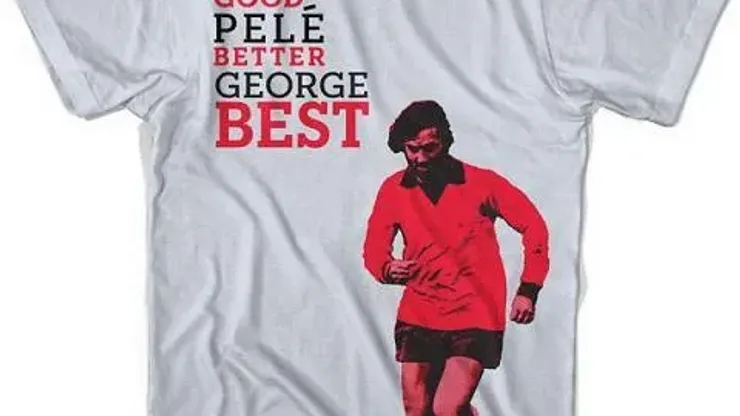In the professional era of world football, the players have a responsibility to their clubs, managers, fans and the game. They are regimented with extensive training programs, fed a disciplined and scientifically proven diet and have their bodies looked after to ensure the pinnacle of sporting performance. Long gone are the days of celebrating a victory on a Saturday afternoon with a few beers after the game down the pub – or are they?
In the golden oldie days, word class players such as George Best were are as good at the taking part in the social part of the sport as they were on the pitch, with no team diets or multivitamins to concern the leading stars. The now deceased former Manchester United great admitting to even having a drink at half time in some games, spent time behind bars for drunkly assaulting a police officer and disgraced himself on national television whilst drunk.
Best was followed by Frank McClintock, a famous womaniser who loved the party lifestyle. The Scotland international was ready for a high profile move to Liverpool in 1972, but failed a medical due to his excessive partying lifestyle. He was given a break to recover, regain health and fitness, take some vitamin D and come back to take the medical for a second time, which he again failed.
Paul Merson and the Arsenal team of the 1990’s were a work hard, play hard team and the former England man went through a three month rehabilitation period in 1994 as he admitted being an alcoholic. Club teammate Tony Adams confessed to playing under the influence of alcohol, was imprisoned in 1991 after being found guilty of driving whilst 27 times over the legal drink-drive limit and went through a recovery process for alcoholism also in 1996.
But it is not only the wild characters of the game that have been apprehended and embarrassed under the influence of alcohol. Squeaky clean Peter Shilton was arrested for drink driving after crashing his car into a lampost, whilst ‘boring’ Alan Shearer assaulting fellow Newcastle player Keith Gillespie after a night out in Dublin.
With professionalism in full swing, wages higher than ever and the commercial aspect of the game demanding footballers act as role models, alcohol shouldn’t play a part in the modern game, but still does.
Of the current crop of professional footballers a spate have been arrested for drink driving, including Jon Obi Mikel, Fabian Delph, Michale Essien and Eidur Gudjohnsen. Tottenham captain Ledley King assaulted a nightclub bouncer on a boozy boys night out, whilst, more seriously, ex-Plymouth Argyle goalkeeper Luke McCormick is serving a seven year jail sentence after killing two boys whilst driving when intoxicated.
The modern Premier League player may have all the right information and people around him, but nonetheless alcohol remains a constant facet in the game, as potential role models turn to shamed celebrities.
Gareth McKnight writes for Soccerlens.com.
200+ Channels With Sports & News
- Starting price: $33/mo. for fubo Latino Package
- Watch Premier League, Women’s World Cup, Euro 2024 & Gold Cup
The New Home of MLS
- Price: $14.99/mo. for MLS Season Pass
- Watch every MLS game including playoffs & Leagues Cup
Many Sports & ESPN Originals
- Price: $10.99/mo. (or get ESPN+, Hulu & Disney+ for $14.99/mo.)
- Features Bundesliga, LaLiga, Championship, & FA Cup
2,000+ soccer games per year
- Price: $5.99/mo
- Features Champions League, Serie A, Europa League & Brasileirāo
175 Premier League Games & PL TV
- Starting price: $5.99/mo. for Peacock Premium
- Watch 175 exclusive EPL games per season






